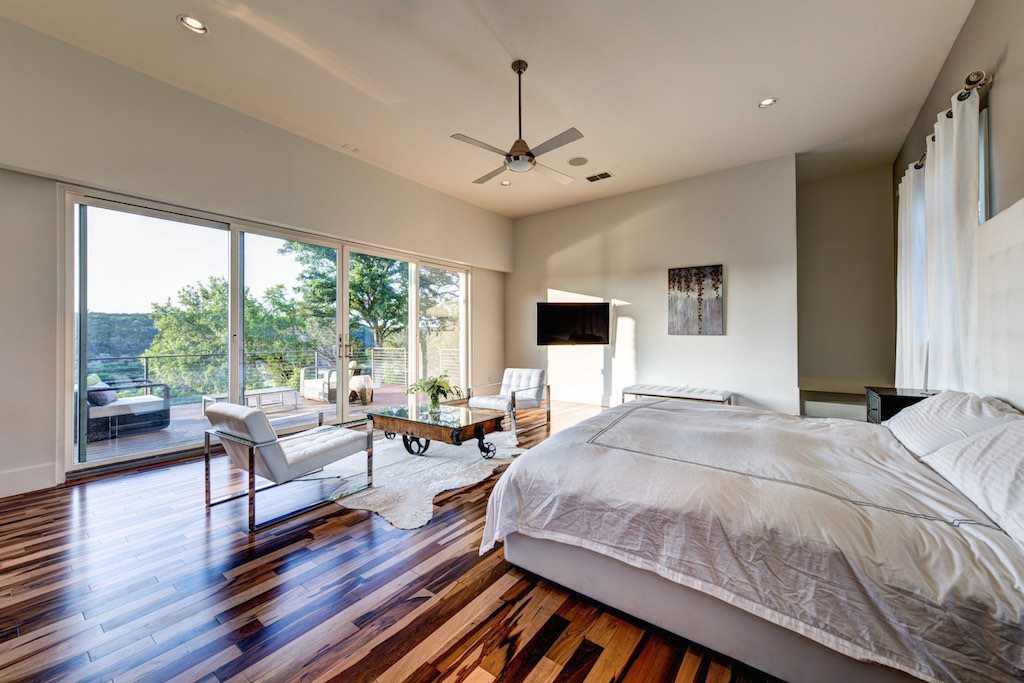Skift Take
But Mark Hoplamazian didn't say Hyatt would never try it out again.
Following news earlier this week that Marriott International, the world’s largest hotel company, plans to officially launch a homesharing platform next week, fellow hotel companies have been asked if they would consider the same.
On Wednesday, for instance, Hilton CEO Chris Nassetta said his company would not pursue homesharing anytime soon.
And on Thursday, Hyatt Hotels CEO Mark Hoplamazian, whose company has experimented with homesharing investments previously — first with Onefinestay and then with Oasis — said that Hyatt’s experiences were ultimately “challenging” and that those businesses were not “sustainable.”
During a conference call with investors to discuss Hyatt’s first quarter earnings, Hoplamazian said the following about Hyatt’s experiences with Onefinestay and Oasis: “When you’re dealing with high-end properties and you try to maintain a level of quality on a consistent basis, the delivery model is expensive and hard to get to a point where you are receiving, from a financial return perspective, a sustainable model.”
He also noted the “negative impact” of stricter regulatory environments in a number of markets as a challenge that will continue to “persist.”
“That’s why I think you see some evolution of the model where the practices are to really focus more on controlled inventory and the like,” Hoplamazian said, seemingly referencing the property management company partnership model that Marriott has adopted for its new Homes & Villas by Marriott product.
However, Hoplamazian didn’t entirely rule out the possibility that Hyatt might experiment with homesharing again in the future.
“We continue to evaluate whether there is a way in which we might also participate in, what I would describe, as a more B2B corporate focused urban residential play,” he noted. “But it’s unlikely going to involve anything that looks like a sharing platform.”
He did also note that the company offers branded residential properties and serviced apartments as well as a “relatively small timesharing and fractional business.”
The Reasons Behind Hyatt’s Homesharing Learnings
While Hyatt’s peers, Marriott and Accor included, have also actively pursued homesharing in a more official fashion, Hyatt has done so by dipping its toes in specific strategic investments. Interestingly, however, both businesses Hyatt chose to invest in have struggled — Accor has not been able to turn a profit from its 2016 acquisition of Onefinestay, and Hyatt took at $22 million impairment charge related to its 2017 investment in Oasis, which was recently sold to one of its competitors, Vacasa.
Earlier this year, Skift explored the ways in which hotels are beginning to embrace homesharing — primarily via acquisition, partnerships, or by creating their own proprietary businesses.
In Hyatt’s case, there were challenges in scaling Oasis’ business, meeting guests’ expectations, and the fact that Oasis was not bookable via the global distribution system (GDS) — the system that connects hotels and airlines with online booking sites and travel agents.
If, as Hoplamazian said, Hyatt is thinking about a more serviced apartment-style play that targets corporate travelers — perhaps like a Lyric, which Airbnb invested in recently — it will have to ensure that those listings can be placed on the GDS, that the quality of those listings can meet or exceed travelers’ needs, and that the number of listings available grows at the right scale.
Updates on Other Partnerships
In addition to its previous homesharing investments, Hyatt has also made some interesting moves by partnering with Small Luxury Hotels of the World (SLH) and, soon, American Airlines, in terms of its World of Hyatt loyalty program.
Hoplamazian gave updates on Hyatt’s loyalty partnership with SLH, noting that more than 96 percent of SLH member hotels participating in World of Hyatt have already gotten bookings from Hyatt loyalty members. Hyatt plans to add 40 more hotels from SLH in May, bringing the total number of SLH member hotels participating in World of Hyatt to more than 200.
As for the World of Hyatt tie-in with American Airlines, Hoplamazian said, “We are presently working closely with American to operationalize and launch the partnership in the very near future.”
He also noted that the company has seen loyalty enrollments rise more than 40 percent in the first quarter, and that World of Hyatt members now account for 41 percent of all room bookings made in the first quarter.
The First Quarter by the Numbers
Although Hyatt saw its first quarter net income drop 84.6 percent to $63 million, and adjusted earnings before interest, taxes, depreciation, and amortization decrease 7.3 percent to $187 million, most analysts saw the company’s earnings either as “mixed” or “solid.” Shares of Hyatt stock were trading lower by approximately 1.46 percent immediately following the company’s Wednesday earnings conference call.
The company did beat Street expectations for revenues, comparable systemwide RevPAR [revenue per available room], and net unit growth. First quarter revenues were $1.24 billion, and global RevPAR was up 1.8 percent, while net unit growth was 13.7 percent in the fourth quarter of 2018.
Hoplamazian ended his prepared remarks by saying: “Even as we came into the year believing that it would be a bit more challenging than last year, I am pleased with our Q1 earnings growth, and we believe that the full year will play out consistent with previously provided expectations by delivering earnings growth in line with our growth model as we discussed at our investor day in March.”
Have a confidential tip for Skift? Get in touch
Tags: accor, airbnb, earnings, hilton, homesharing, hotel earnings, hyatt, loyalty, marriott, oasis, onefinestay
Photo credit: An Oasis listing from Austin. Hyatt previously invested in the homesharing platform before it was sold to competitor, Vacasa. Oasis
